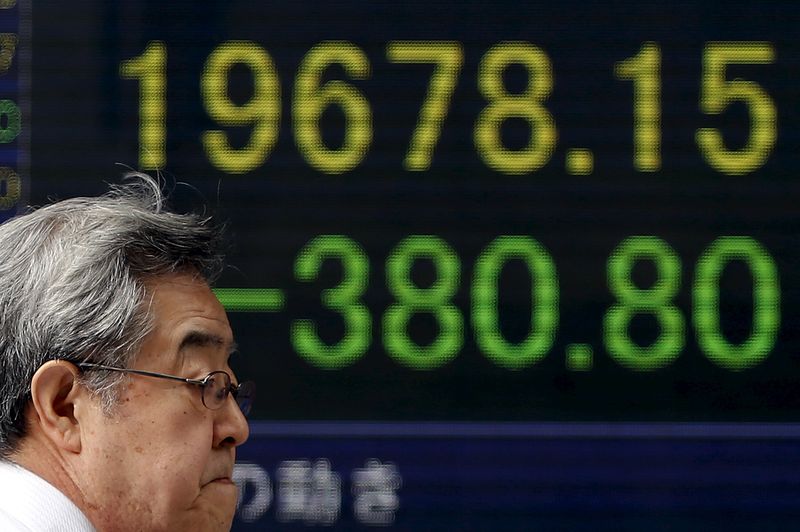By Gina Lee
Investing.com – Asia Pacific stocks were down on Wednesday morning, with investors bracing for the U.S. Federal Reserve to reduce its debt holdings much quicker to curb inflation.
China’s Shanghai Composite was down 0.55% by 10:25 PM ET (2:25 AM GMT) and the Shenzhen Componentwas down 0.28%. Chinese markets re-opened after a two-day holiday, and the Caixin Services purchasing managers index for March 2022 was 42.
Hong Kong’s Hang Seng index fell 1.74%, with markets also re-opening after Tuesday’s holiday.
Japan’s Nikkei 225 slid 1.94% and South Korea’s KOSPI fell 0.88%.
In Australia, the ASX 200 was down 0.82%.
U.S futures fluctuated in reaction to Wall Street’s losses overnight. Treasuries extended their losses, with the 10-year yield at the highest level since 2019 and in Asia Pacific, Australian and New Zealand bonds also dropped.
Worries about the war in Ukraine, triggered by the Russian invasion on Feb. 24, also remain. The U.S., European Union (EU) and Group of Seven are coordinating on a fresh round of sanctions on Russia, which could isolate the country even further and increase the war’s economic impact.
The sanctions under discussion include a U.S. ban on investment in the country, an EU ban on coal imports and increased penalties on financial institutions. They could also target Russian President Vladimir Putin’s daughters, political figures and tycoons.
On the central bank front, Fed Governor Lael Brainard on Tuesday said that getting inflation under control is “paramount,” adding that the central bank could begin paring its balance sheet more quickly as soon as May 2022.
Brainard’s comments drew even more attention to the minutes from the Fed’s latest meeting, due later in the day. Investors will be parsing the minutes for clues on how fast the central bank will hike interest rates and the pace of quantitative tightening. Concerns are also mounting that a more restrictive Fed monetary policy could lead to an economic downturn.
“The key risk for Wall Street correlated world stock markets remains the Federal Reserve tightening cycle,” Jefferies LLC global head of equity strategy Christopher Wood said in a note. Debt levels mean the impact of a tighter monetary policy will be much quicker, particularly if quantitative tightening comes alongside rate rises, the note added.
Investors will also be paying attention to speeches from other Fed policymakers throughout the week. Philadelphia Fed President Patrick Harker will speak later in the day, while St. Louis Fed President James Bullard, Atlanta Fed President Raphael Bostic, and Chicago Fed President Charles Evans will speak at separate events on Thursday.
Meanwhile, the Reserve Bank of India will hand down its policy decision on Friday.
In another sign of diminishing risk appetite, bitcoin was on a downward trend and fell below the $45,000 mark.
